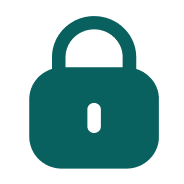Solutions for your business
We offer an effective combination of broad customer service expertise and deep product knowledge to ensure customer experience.

Initial Assessment
The consulting process typically begins with an initial assessment, where the consultant meets with key stakeholders to understand the client’s business, goals, challenges, and expectations. This phase involves gathering information, conducting interviews, and reviewing relevant data or documents.

Problem Identification
Once the consultant has a clear understanding of the client’s situation, the next step is to identify the specific problems or areas of improvement. This could involve analyzing financial data, market research, operational processes, or organizational structure. The consultant may also collaborate with the client to define their goals and objectives more precisely.

Solution Development
Based on the findings from the assessment and analysis, the consultant develops potential solutions and recommendations. These solutions are tailored to address the client’s specific challenges and align with their goals. The consultant may consider industry best practices, market trends, and their own expertise to design a comprehensive and actionable plan.

Strategy Implementation
Once the client approves the proposed solutions, the consultant works closely with the client’s team to implement the recommended strategies. This may involve refining business processes, introducing new technologies, improving communication channels, or implementing organizational changes. The consultant may provide guidance, training, and support during the implementation phase.

Monitoring and Evaluation
After implementing the solutions, consultants often monitor the progress and evaluate the outcomes to ensure they are delivering the desired results. They may use key performance indicators (KPIs) to measure the effectiveness of the strategies and make adjustments as needed. Regular meetings and progress reports are typically part of this ongoing evaluation process.

Knowledge Transfer
As the consulting engagement progresses, consultants aim to transfer knowledge and skills to the client’s team. This enables the client to sustain the improvements achieved and build internal capabilities for future success. Training sessions, workshops, or mentoring may be provided to empower the client’s employees.

Closure and Follow-up
Once the consulting project is completed, consultants typically conduct a final review and closeout phase. This involves summarizing the outcomes, documenting the lessons learned, and providing any necessary follow-up support or recommendations. Consultants may also maintain a relationship with the client for future engagements or ongoing support.
It’s important to note that the consulting process can vary depending on the specific client’s needs, and the nature of the industry. Each consulting engagement is unique and tailored to the specific circumstances and goals of the client.



